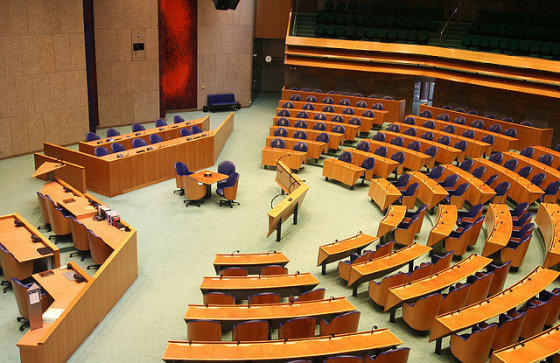From company bikes to paternal leave: what is changing in 2020


As usual in the Netherlands, the start of a new year means plenty of changes in terms of taxation, employment and other legislation. Here’s what you need to know:
Income tax
The tax system is being cut from three to two tax bands. Earnings up to €68,507 will be taxed at 37.35%, while earnings over that limit will be taxed at 49.5%. The tax credit on work and the general tax credit applied to everyone in work are also going up slightly. In all, people in work should see their take home pay rise by about 2%.
Minimum wage
The minimum wage will rise to €76.32 a day for workers aged 21 and over. For a 15-year-old, the minimum wage is €22.90 a day or just €2.87 an hour.
Self employment
The self-employed tax break will be lowered from €7,280 to €7,030 next year as the government starts reducing the benefit down to €5,000 by 2028.
Small businesses
A whole host of changes are taking place which will affect small firm owners. This year the government has provided a handy round-up in English.
One of the biggest is a change to the system for determining how much value-added tax (btw), small firms should pay. Firms with a turnover of less than €20,000 may be exempt altogether. Find out more in English here.
Flexible contracts
One of the biggest changes facing both entrepreneurs and people on flexible contracts is the introduction of new legislation known as the Wet Arbeidsmarkt in Balans or, literally, labour market balance law.
Among the changes: from 1 January 2020, you as an employer will pay a lower unemployment benefit contribution for employees with fixed-term contracts and a a higher contribution for employees with a flexible contract.
People working via payrolling firms will be entitled to the same benefits as those on ordinary contracts. More on these changes, in English

Smoking
Smoking will be banned at schools, including in playgrounds, on petting zoos and near childcare locations from January 1.
The price of a packet of cigarettes will go up by a few cents in January, but by a full euro on April 1, taking the average cost of 20 cigarettes to over €8. Smoking rooms in cafes and bars will also become a thing of the past on that date.
From July, packets of cigarettes and rolling tobacco will be plain, with the name of the company and health warnings. Supermarkets must also keep cigarettes out of sight.
Housing
The rate at which people can deduct the interest paid on their mortgages will go down from 49% to 46%.
The maximum rent in the social housing sector will rise to €737.14.
New rules for flat sharing and bed and breakfast operators come into effect in Amsterdam.
Online reading
Subscriptions to online newspapers and magazines, and e-books, will be taxed at the lower value added tax rate of 9% rather than 21%.
Divorce
From January 2020, the maximum period a partner can be ordered to support an ex is being cut to a maximum of five years. If young children are involved, alimony can be paid up until the youngest child is 12 and the over 50s can claim for up to 10 years.
Children
The maximum hourly rate payable for childcare has gone up to €8.17 per hour for a daycare place and €7.02 for after-school care. If the childcare you have opted for is more expensive, you have to pay the excess yourself.
The actual amount of benefit you can claim depends on your household income – with a minimum payment of 33.3%.
Partners will get five weeks parental leave, paid at 70% of salary, from July.
Health
Health insurance premiums are rising only a fraction, if at all, but it is still worth checking a comparison website for a better deal.
The main change is a reduction in the size of the discount insurance companies can offer to groups. The maximum discount has now been reduced from 10% to 5%.
From 2020, people who apply for help with stopping smoking will not have to pay towards the cost from their own-risk contribution. There are no significant changes in the make-up of the basic health insurance package.
Healthcare benefits will rise by €60 a year for a single person to €1,248 and by €84 for a couple to €2,388.

Military service
Even though the Netherlands abolished military service in 1996, from 2020, all girls turning 17 will be issued with conscription call-up papers alongside the boys.
Law and order
Distributing revenge porn will become a criminal offence, with a maximum jail term of up to two years.
The fines for traffic offences will also go up.
Pensions
The state pension age will remain 66 years and four months.
Environment
National rules will come in which local authorities will have to follow when implementing environmental zones to restrict certain types of vehicle.
The owners of old, more polluting diesel cars will have to pay an extra tax of 15% on top of road tax.
Electric cars
People with an electric company car with a catalogue value of under €45,000 will have to pay tax on 8% of the value of their car, rather than 4% as at present. More expensive electric cars will fall under the 22% tax rate.
Company bikes
If your employer provides you with a bike you will need to add 7% of the recommended retail price of a new bike to your taxable income, as a perk. But you will no longer have to keep a log of how far you have cycled.
Thank you for donating to DutchNews.nl.
We could not provide the Dutch News service, and keep it free of charge, without the generous support of our readers. Your donations allow us to report on issues you tell us matter, and provide you with a summary of the most important Dutch news each day.
Make a donation